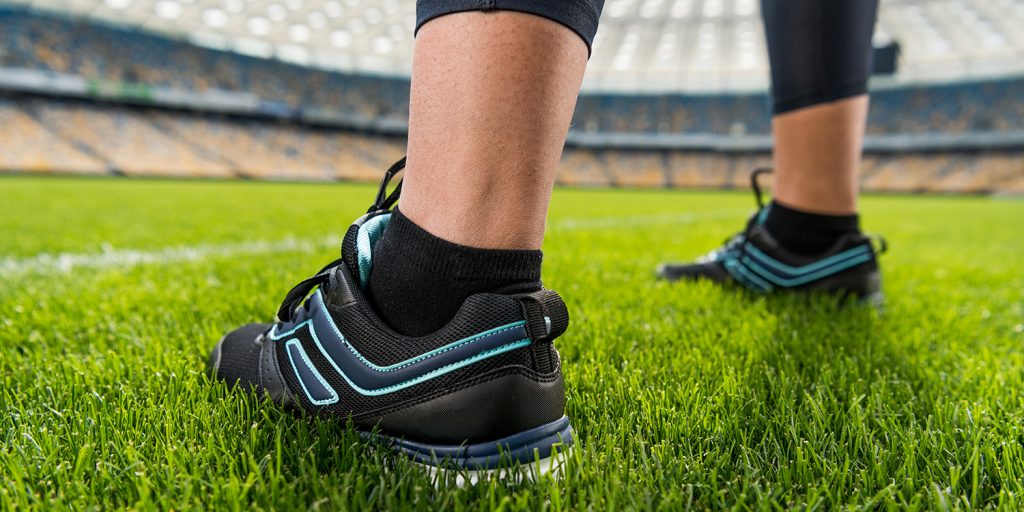Beth Shubin Stein, MD, Associate Attending Orthopedic Surgeon
Sabrina Strickland, MD, Associate Attending Orthopedic Surgeon
HSS Patellofemoral Center
Do you feel pain in the front of your knees when going down stairs? Does knee pain interfere with your ability to walk, run, kneel, squat, or stand up comfortably? Has your knee ever “given out” on you? If you answered yes to any of these questions, you may be suffering from patellofemoral knee pain, arthritis, or instability. Anyone can suffer from these conditions, but they are more common in women than men.
Commonly known as “runner’s knee,” patellofemoral (“anterior knee”) pain can affect anyone. It can happen in people with improper alignment, where the kneecap does not slide smoothly in the groove or track of the femur (thighbone). This type of problem may run in families. Or it may result from injury to the knee (usually during adolescence or young adulthood).
Some people feel pain around or under the kneecap. Others feel instability and may experience a kneecap dislocation. Not everyone with patellofemoral problems needs surgery, but in some cases it is warranted to prevent more serious problems down the road. Here’s how to know what may lie ahead for you. (See a doctor to know for sure.)
If You Have Knee Pain
If you have knee pain without dislocation of the kneecap and a short course of modifying your activities does not resolve the discomfort, see a primary care sports medicine doctor or an orthopedic surgeon. You’ll likely have an x-ray of your knee to see how the kneecap is tracking in the groove of the femur. Physical therapy may help to strengthen the muscles around the knee that help keep the kneecap in place. If your pain persists despite physical therapy, you may need an MRI to look for cartilage damage under the kneecap.
If You Have Arthritis
If tests show there is cartilage damage under your kneecap (arthritis), you may continue physical therapy and/or receive injections to reduce inflammation and provide lubrication. Your doctor or physical therapist may advise you to change, reduce, or avoid certain activities that may aggravate your symptoms. Some patients with cartilage damage may have surgery with techniques that allow regrowth of the damaged cartilage or replace damaged bone with donor bone and cartilage. The surgeon may also correct any misalignments to prevent or minimize future cartilage damage. Patellofemoral cartilage surgery is typically reserved for younger patients (under age 35) or for older patients whose pain persists despite nonsurgical treatments. Some older patients may have partial knee replacement to create a new smoothly gliding joint.
If You Have Kneecap Instability
When the kneecap doesn’t track evenly in the groove of the thigh bone, it can slide out to the side (dislocate), causing your leg to give out under you. This instability is most common in adolescents and young adults, and it is also more common in females. But it can happen in anyone at any age with patellofemoral malalignment and trauma.
Doctors used to think that patients who had only one dislocation should always try nonsurgical treatment. However, much has been learned in the last five years indicating which patients with a first-time dislocation have the highest risk of recurrence. As a result, all patients who have a dislocation should see an orthopedic surgeon to determine if they are in that high-risk group and might benefit from early surgery.
If your kneecap dislocates a second time, you will need surgery to reduce the risk of arthritis from continued dislocations. During the procedure, the surgeon may rebuild the medial patellofemoral ligament — a “leash” that holds the kneecap in place, which often tears during dislocation and then heals in a stretched-out position. This can be done using your own or donor hamstring tissue; in some cases, you may require an additional bony surgery to fix problems with poor alignment. We are currently doing research to identify factors that increase the risk of a second dislocation among first-timers and potentially perform surgery earlier in those people to prevent subsequent dislocation.
If your kneecap has dislocated, it’s extremely important to have it checked out. Each time you experience a dislocation, there is likely to be damage to the cartilage that increases your risk of arthritis. See a sports medicine physician or orthopedic surgeon to find out what’s best for you.




